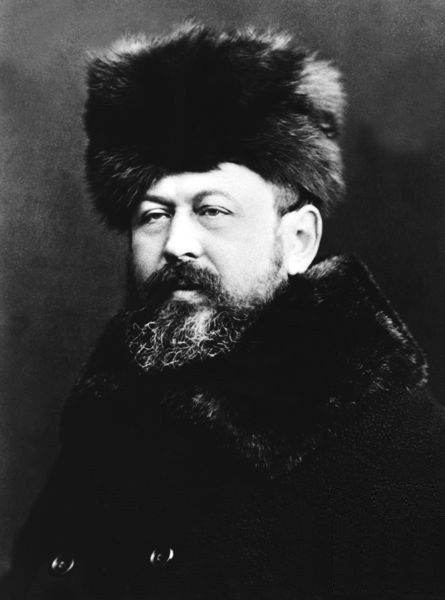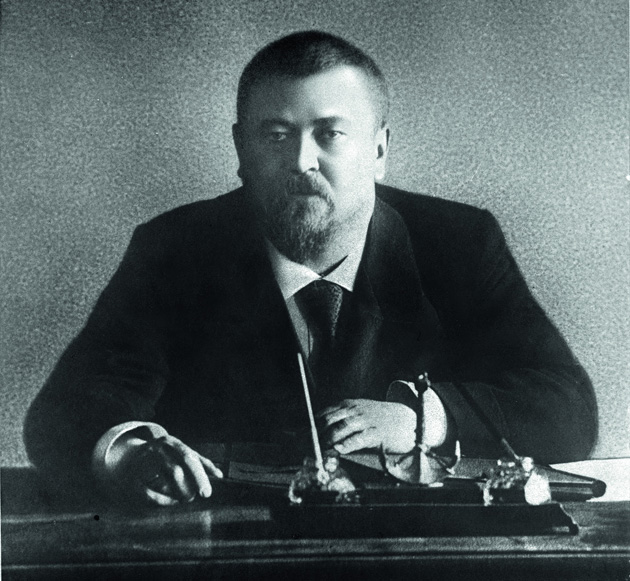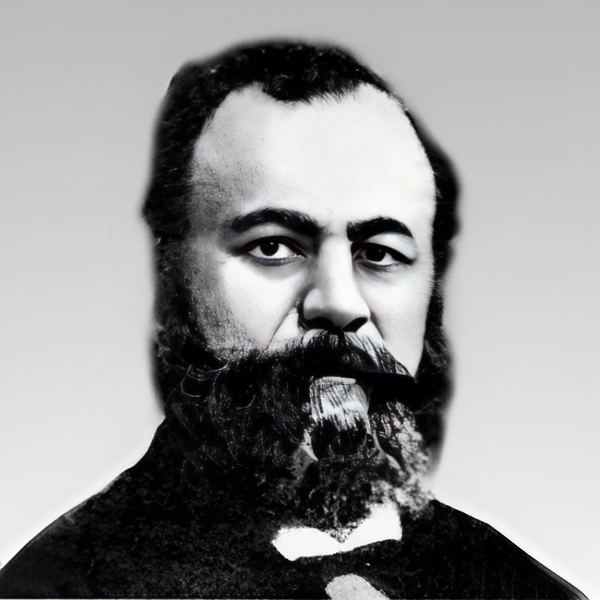Since 1918 the magazine Forbes publishes a yearly list of the richest people all over the world. However, due to the Russian revolution, that changed the life of the entire country in 1917, nobody from the Russian Empire has got to appear on any Forbes list. But today we will try to present you three families from the Russian Empire who could attain their own Forbes rating.
5th place: the golden century of the Günzburg family
The roots of this Jewish family are to be found in Bavaria and Kingdom of Poland and the Grand Duchy of Lithuania, where the first Günzburg was engaged as a rabbi. In the 19th century the Günzburgs moved east and reached the Russian Empire where they began their wine business. They used to supply wine to the Russian army in 1812 during the war with Napoleon. In some time a a Günzburg got a merchant rank and became a subject of the Russian Empire. More privileges the family received after the Crimean war thanks to the emperor Alexander II’s attention. But all the family members had a clear understanding that their activities shouldn’t be confined to wine business. That`s why the head of the family, Joseph Günzburg, established a banking firm in Saint Petersburg and later in other cities. The Günzburgs were ennobled by the Grand Duke of Hesse-Darmstadt in 1871, and Joseph received the title of baron on the 2nd August 1874.
The son of Joseph Günzburg, Horace, ran the family business after his father`s death. Because of a financial crisis in 1892 Horace Günzburg switched to gold mining in Siberia. But it turned to be one of the darkest chapters in the history of the Günzburg family. Trying to get the biggest profit, they didn`t pay enough attention to workers and that is how in 1912 the strike near the river Lena began. The mining business was soon stopped, and after 1917 the family emigrated to the USA.

Baron Horace Günzbur. Source: Wikipedia
4th place: the Russian Medici or the Morozovs
The history of this family is unique. The founder of this dynasty was Savva Morozov, born as a serf. He worked at a textile factory and thanks to his marriage to Ulyana he got enough money to buy his freedom. Having earned freedom, the family began its own business in the textile industry.

Savva Morozov, 1862-1905. Source: Wikipedia
Savva Morozov and his wife had six children. Four sons Elisei, Zakhar, Abram and Thimofei joined the family business, in which each son got his own area of interests. That is how appeared the four branches of the Morozovs. Each branch of the Morozov family was engaged in the textile industry. Thanks to the factories, there were new houses, churches, hospitals, schools, public saunas being built so that the workers didn`t have to live far away from their workplaces. The infrastructure of towns and cities was improving. The Morozovs also headed the Moscow committee, that was responsible for laws and rules regulating commerce and trade.
Moreover, they funded newspapers, founded a museum of porcelain, collected masterpieces of European art (nowadays all the paintings are in the collection of the Pushkin Museum), supported theaters. After the revolution 1917 some members of the Morozovs family left the country. All factories, houses, hospitals, museum etc. were nationalized.
3d place: Vtorov empire
There`s no exact information about the origins of the founder of the Vtorov`s empire. Alexander Vtorov was born in 1841 in an ordinary family. His start-up capital he got through a marriage in 1861. Understanding that the capital cities Moscow and Saint Peterburg were overflooded with traders, Alexander Vtorov decided to establish his business in Siberia. He used to select and buy goods for markets carefully because he wanted to sell only unique items. At that time it was the delivery, that posed the major challenge for a Siberian business because there was no rail transport. It meant that all the goods had to be planed for months on and carefully transported to Siberia. Due to a great success Alexander Vtorov decided to widen his wholesaling. For the first time in the Russian Empire he built a passage as a department store. Moreover, he opened a restaurant and a hotel there. His business grew successfully and in 1897 Vtorov moved to Moscow because traders were gaining political weight in the society. Alexander Vtorov himself wasn’t, however, known in Moscow despite millions on his bank account. His son, Nikolai, stayed in Siberia to run the business further with assistance of his elder brother Alexander, while his father was getting acquainted with influential people in Moscow. In the Nikolai’s and Alexander’s hands the family empire continued to grow. Besides textile factories, passages, gold mining, passages Nikolai and Alexander Vtorov opened inns, hotels, casinos and a hunt society.

Alexander Vtorov. Source: Wikipedia
Additionally, the Alexander Vtorov’s empire grew bigger and more influential through his sons’ and daughters’ marriages. Thanks to the new relatives, the family got shares in different enterprises. Unlike the other rich families, e.g. the Morozovs, nobody from the Vtorovs patronized art, being onlyfocused on commerce, manufacturing, and industry. An especially great role the Vtorovs played during the First world war when their textile factories produced bandages and soldiers’ uniform. Moreover, the Vtorovs invested money in production of military trucks. Their last and probably the biggest project was the construction of a steel mill. The construction took long, and although the order for the construction was signed in 1916 by the last Emperor of the Russian Empire, Nikolai II, it was ready only in November 1917 when the monarchy was replaced by the Bolsheviks’ regime. The Bolsheviks appreciated the role and the impact of the Vtorov family and decided to cooperate with them. However, in 1918 Nikolai Vtorov was killed. The family business was inherited by his son Boris, but in a short time the Bolsheviks nationalized all his factories. After this almost the whole family emigrated.
If you like this article, let us know about it in comments below and soon we tell you about other richest families of the Russian Empire!
